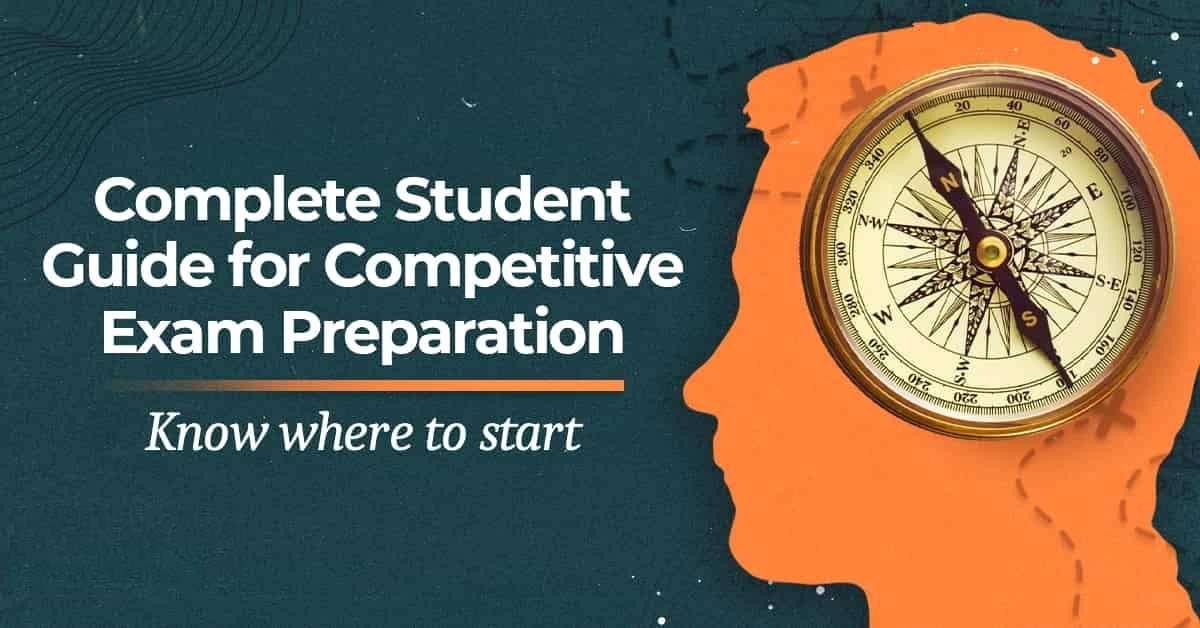
By Muhammad Asim Jasra (PSP)
Part-1
CSS is the most cherished dream of the educated youth as far as their academic-cum-professional pursuits are concerned. This brief writing will cover vital aspects of preparation for the CSS examination.
Why CSS?
Here are a few of the factors which attract a large number of aspirants to the competitive arena.
- Recognition
- Role in the decision making
- Service delivery
- Perks and privileges
- Horizontal and vertical mobility
- Service structure
1.Appropriate subject selection
Subject selection is the fundamental decision that has a direct bearing on the success of any aspirant. The following points are to be kept in mind while selecting the subjects:
- Certain subjects are primarily considered self-taught or general subjects without background knowledge or academic qualification. For example, Political Science, Criminology, Gender Studies, Punjabi (and other regional languages), History of Pakistan and India, and Public Administration. In such subjects, opinions and analysis of the aspirant are required. These subjects are recommended because they are comparatively easy to comprehend and are rated as higher on the scoring trend or potential.
- Certain technical subjects cannot opt without a relevant academic background, for example, Chemistry, Physics, Economics, Computer Science, Botany, Zoology, and the like. Even candidates with appropriate academic qualifications find it challenging to cover the syllabus and secure good marks. These subjects are not recommended as they consume much precious time with less time left for the preparation of remaining subjects and do not give a good score.
2.Reading
Reading becomes the lifestyle of a CSS aspirant. It is very much imperative to inculcate the reading habit in oneself. Please keep in mind the following points related to reading.
- Real only the relevant material. The art lies in knowing what to read and, more importantly, what not to read. There is a lot of information available on a single topic. It is necessary to apply the filter of relevance to what you read in light of the questions asked in the previous papers. One has to define and restrict the scope of reading on a given topic. Otherwise, it will not be easy to cover the syllabus. For example, you may find several books on globalization; reading all these books on a single topic may take months and years. For this reason, one should know what to read and what not to read.
- While reading, one should be mentally alert to note the following important information to support one’s arguments.
- Concepts
- Quotations / Famous sayings
- Proverbs
- Excerpts
- Comparisons
- Data/figures
- Examples
- Case studies
- Findings of Surveys
- Reports
- Theories
- Read and make notes. Reading without making notes does not pay you much.
- Arouse your curiosity and read to search for the answers to your questions. What you read should stir your thoughts and produce original ideas.
- It is always the best practice to think in terms of questions. Draft questions while reading. It is a kind of reverse learning. What you read should be the answer to some questions. Make notes of questions in the course of reading.
- Read with care and appreciation. Read critically. Make your comment on the column of the book or the reading material. Put question marks where a question arises in your mind.
- Make frequent use of the dictionary in the course of reading.
- If you start loving to read books, books will become a fortress that will protect you from hours of loneliness and boredom.
- Neither any entertainment is so cheap nor any pleasure so lasting as reading.
3.Using dictionary
It is advised that one should consult a dictionary frequently in the course of reading. One should consult a dictionary whenever one confronts an unfamiliar word or phrase. The reader should ascertain the meanings of the family of words (may also be called derivatives of one word) instead of one word and grasp the implications of all the words belonging to that family. For example, Act is one word. The following terms constitute its family or are called derivatives: Act of God, acting, action, actionable, action group, action-packed, activate, active, active list, active service, activist, activism, activity, actor, and actress. This practice will enable the reader to enhance his vocabulary in a single consultation.
In addition to looking for the meaning of the specific word, one should read sentences given in the dictionary to elaborate on the use of the word in sentences. This would further clarify the meaning and nature of words, i.e., nouns, adjectives, verbs, and proverbs.
There is another term called phrasal verbs, in which a single verb followed by different prepositions implies different meanings. Take the example of ‘Look.’ The following phrases are derived from the single verb that means other.
- Be looking to do something
- Look him up and down
- You are not looking at yourself today
- Never look back
- To look at him, you would never think he was old
- Look after
- Look ahead
- Look around
- Look at something
- Look back on your childhood
- Look into
- Lookout
- Lookup
I know it is very laborious and tedious to consult a dictionary whenever one confronts a complex or unfamiliar word. However, one should keep the following quote in mind.
“The more trouble you endure, the greater reward you have.”
The CSS aspirant should display this quotation in front of his study desk to have a constant and unending supply of motivation during the preparation.
One may maintain a vocabulary register to note difficult words and their use in sentences.
Ascertaining the relevance of what you read
It has already been highlighted that sticking to the relevant reading material is very significant. For this purpose, the following two documents will help you determine the relevance of the reading material to the CSS syllabus.
- FPSC syllabus: It gives an idea of broader outlines or topics.
- Past papers: They help identify the specific aspect of any more general topic that is essential.
For example, the first topic in the syllabus of Current Affairs is ‘Pakistan’s domestic Affairs- Political, Social and Economic.’ The following question related to the syllabus outline above has been asked in the Current Affairs Paper of 2021.
Question: Most of the major political parties have committed to the creation of new provinces in Pakistan. Should new provinces be created or not in Pakistan? Elaborate your answer by giving references from the recent province debate.
This question from the 2021 paper on current affairs suggests that creating new provinces that fall in the category of Pakistan’s domestic political affairs is essential.
This way, one can have a fair idea of different vital aspects of a broader topic. I will not suggest that one should confine one’s preparation to past papers only. Instead, I want to point out that aspirants should prepare a CSS syllabus in light of past papers.
4.Critical thinking
There are no two opinions about the fact that thinking is the basis of all knowledge and learning. The candidate should be able to improvise one’s ability according to the questions asked in the CSS papers, which require critical thinking or a personal opinion of the candidate supported by solid examples and arguments. The factor distinguishing the CSS examination from other examinations is that the candidates must attempt the questions based on their critical thinking. For example, read the following question from the CSS 2009 paper of Islamiat.
Question: Muslims arrange for the recitation and learning of the Quran by heart but neglect to understand and practice the Quran. What methods can be applied for the reformation of negligence?
A perusal of this question makes this point home to us that we need critical thinking to answer a big chunk of questions asked in CSS papers.
For this, one should believe in the potential of one’s mind as it is the most powerful tool in the human body with a lot of storage capacity for knowledge. This knowledge comes to the conscious mind when one starts thinking critically.
An essential thing about critical thinking is that it is a habit that can be inculcated after making conscious efforts in this regard. Follow the following guidelines:
- Take a piece of paper and a pencil, and start thinking about a topic.
- Write the ideas coming to your mind
- Keep this thing in mind no idea is stupid or silly. Write your thoughts without judgments.
- Think freely. Give your imagination a free ride. Set no limitations. Produce as many ideas as possible.
- Make connections among ideas based on cause-and-effect relationships.
- Evaluate the pictures in the final stage based on relevance to the topic in question.
“Believe that your mind is Aladdin’s lamp for you, and it is ready to do wonders for you if you acknowledge it and don’t take it for granted.”
5.Brainstorming
It is defined as group discussions to produce ideas on a given topic and solve any specific problem. In the non-availability of other group members, the same thinking process can be done alone. For this, minimizing distractions is very important. Distractions include electronic gadgetry, mobile phones, video games, television, and gossip with friends. Choose a comfortable place to sit. Think to generate ideas on a given subject. It is said that more heads are better than one.
6.Self-study versus Group Study
A comparative analysis of self-study and group study is given below:
You are the master of your routine. It depends on the availability of group members. It is recommended that the group be small, i.e., 2 to 3 Sobre and dedicated members are enough. You rely on your ideas. Your ideas multiply. Academic interaction with other group members may add to the quantity and quality of your thoughts.
Group study is a good idea, but group study should be carried out after each group member has studied the relevant material. Group discussion works as an interactive session among the members, which enables all the members to think critically and clarify their concepts by raising questions and answering them. Group study without individual preparation is a futile exercise. In case of the non-availability of group members, self-study is equally good as it saves time.
7.Making Notes
Aspirants should make their notes after consulting different sources and books. Why is it essential to make notes for CSS? You will only find some relevant material in one reference or textbook. You will have to consult different books. Compiling them in one place in the form of notes makes it easier to recollect and revise. On the other hand, writing notes allows you to arrange information and ideas in a logical sequence. Following the guidelines will help you in making your notes.
- Instead of incorporating all the details, write your notes in the form of hints or clues.
- Write as briefly as possible. Brevity will enable you to revise the syllabus during the Examination, as the real challenge comes during the Examination when time is short and you have to fix the whole syllabus.
- Only quotations, excerpts of reports, speeches, or data should be recorded in detail, as we require them to be reproduced without any modifications.
- Candidates should skip no critical data or argument, or information.
- Write only those points which you have comprehended fully. Only include points that you have fully grasped.
- Notes should be comprehensive, covering all the aspects asked in the previous question papers.
- Make notes according to the topics given in the FPSC syllabus.
- Ordinary concepts you can reproduce without preparation should be made separate from the notes. These points can be mentioned briefly in the form of hints.
- Make the following points part of your notes as these points support or strengthen your arguments:
- Concepts
- Quotations / Famous sayings
- Proverb
- Excerpts
- Comparisons
- Data/figures
- Examples
- Case studies
- Surveys / Reports
- Theories
8.Advantages of making notes
- Notes contain all the key points which enable the readers to revise swiftly.
- Notes keep you focused.
- Notes inform you about the aspect of a given topic that is not covered. For example, if you are reading material related to any specific topic, you will not know which element you have yet to cover. Only writing the notes on paper will make you analyze the missing aspect of a given topic.
Just pass on to the next paragraph if you need help understanding the concept. There is plenty of relevant material. If you consult different sources for any given topic, you may confront reading material that you will find very difficult to grasp. It is outstanding to pass on. The following source or reading will clarify your concepts on that given topic.
To be Continued.












